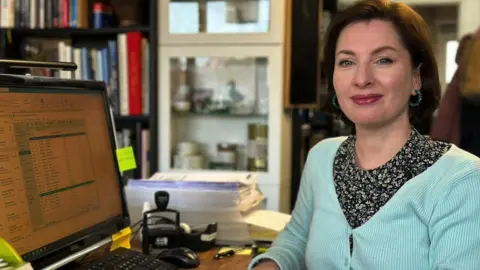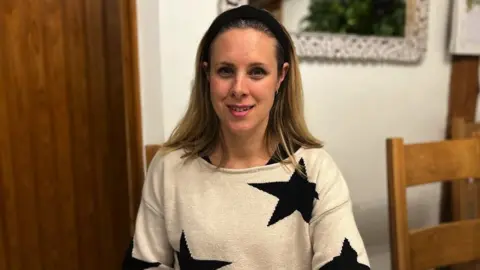Homes for Ukraine: Sponsorship ends for thousands of Ukrainians
 BBC
BBCAbout 51,000 people who came to the UK under the Homes For Ukraine scheme have now reached the end of their six-month sponsorship period, the BBC has found.
UK sponsors agreed to house Ukrainians for a minimum of six months - and BBC analysis suggests almost half of those who arrived under the scheme have now reached the end of their sponsorship.
Councils say some are already homeless after leaving their sponsors' homes.
The government says it is working to ensure they all have somewhere to live.
The scheme, which was launched in March, allowed Ukrainians who were fleeing the war with Russia to come to the UK - if a sponsor agreed to provide accommodation for at least six months.
As that period ends for many Ukrainians, some councils have increased the £350-a-month payment sponsors have received to encourage more households to keep housing Ukrainians.
But it is not a national policy. And many hosts and their guests aren't sure what the plan is at the end of six months.
It comes as the latest figures - up until 18 November - show more than 2,000 Ukrainian families with children, as well as 900 individuals, have registered with local councils as having no where to live.
Some are homeless because sponsorships have broken down, others because they have been in the UK for more than six months and don't have anywhere else to go. The figure is likely to be an underestimate, as not all councils provided figures.

Last Christmas, Alina Zagorska was in Kyiv, but she moved to the UK with her 11-year-old son under the Homes for Ukraine scheme, in May.
Like many Ukrainians who came to Britain her sponsorship should have finished and she's struggling with what happens next. She has a job and can afford the monthly rent but, without a guarantor, she is finding it difficult to even be allowed to view properties.
"I can't find the accommodation because the agents don't want to show me the property because I don't earn enough money, so they said I need to earn more to just show me the property. So this is not very fair."
She says she needs someone who will guarantee she will pay her rent, adding: "But I don't have it here because I'm alone with my son…I want to be an independent person, this is my dream."
Igor and his two daughters - 23-year-old Viktoria and 11-year-old Svitlana - have registered as homeless after the relationship with their sponsor broke down.
They told the BBC that they could not find a new sponsor with more than one room available, and have been forced to move between temporary accommodation organised for them by a charity.
"We are tied to this area because of schooling", they told the BBC. "We've been to hotels twice already. The problem with them is that there is no kitchen. We then have to eat out."
'Deeply concerned'
In Buckinghamshire, Liz Robinson recently hosted two Ukrainian women and their children. It was a positive experience, she says, but again they hit problems when her guests tried to find their own flat.
"There was no way that they were going to give it to her without me as the guarantor," Liz says. So she offered to be the guarantor. She felt she could trust her guest, but admits she has some worries about the financial implications - especially if they suddenly decided to return home.
The Local Government Association, which represents hundreds of councils in England and Wales, said it was "deeply concerned" about the situation, adding: "We anticipate more families needing to present as homeless in the coming weeks without urgent intervention."
The Department for Levelling Up said the "vast majority of sponsors want to provide support for longer than six months".
"We are working closely with councils to ensure all those who have fled Putin's war have a safe place to live and, in the minority of cases where family or sponsor relationships break down, councils have a duty to ensure families are not left without a roof over their head."
Additional Reporting by Olga Smirnova.
